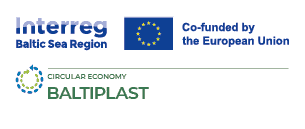
Reusable dishes and waste management at Youth Song and Dance Festival in Tallinn, Estonia
16 April 2024
Background of the Estonian Song and Dance Festival
The Estonian Song Festival is one of the largest choral events in the world and it is held every five years in July on the Tallinn Song Festival Grounds simultaneously with the Estonian Dance Festival. The Estonian Youth Song and Dance Festival is a mini-version of the Estonian Song and Dance Festival. The last Estonian XIII Youth Song and Dance Festival „Holy is the Land“ took place from 30 June to 2 July 2023 and brought together ca. 125 000 participants and visitors from Estonia and abroad (Pictures 1 and 2). The last festival set the focus on sustainability and the aim was to minimize the amount of waste generated during the event.
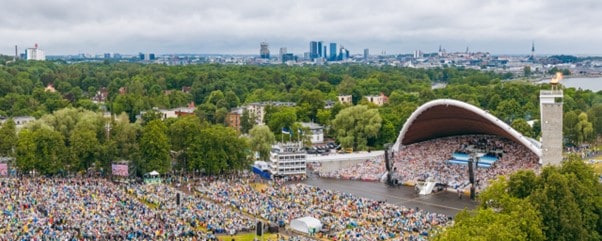
Picture 1. Youth Song Festival
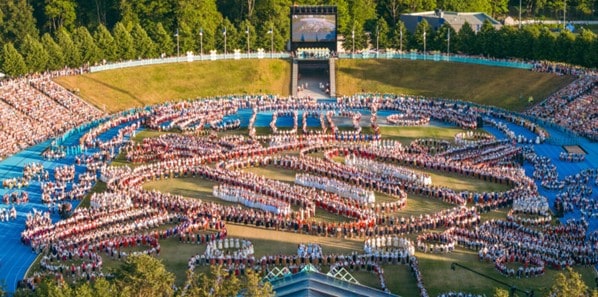
Picture 2. Youth Dance Festival
Challenges faced at public events
Most of the public events in the city of Tallinn have relied only on single-used dishes for serving food and drinks. This made public events very wasteful and a huge amount of mixed waste was generated afterwards. In addition, it created littering problems and visual pollution (overloaded waste containers, picture 3).
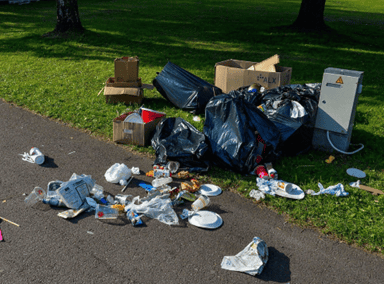
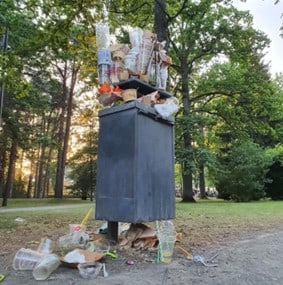
Picture 3. Littering and overloaded waste containers
During the pre-festive week and the 3-day event of the song and dance festival around 125,000 participants required multiple daily meals. Around 320,000 pieces of single-used plates/cups/utensils were used at the festive week generating tons of mixed waste that ended up in incineration or landfill. This made the visitors and organizers of events unsatisfied and therefore actions needed to be taken.
Ban of single-use plastic dishes
To respond to this problem and to move towards circular events the city of Tallinn decided to ban single-used plastic dishes (plates, cups, forks, knives, spoons, etc.) in all public events held in Tallinn. As a first step, the city adopted a new regulation (Rule for organising and holding public events in the city of Tallinn). According to this regulation, only compostable (according to EN 13432 standard) dishes were allowed for serving food and drinks in a public event (entertainment event, competition, performance, trade event or other similar gathering of people that takes place in a public place and is open to the public with or without a ticket). Although this was a big step forward decreasing the amount of single-used fossil-based plastic dishes and cutlery it did not reduce the amount of waste generated.
Therefore, as a second step, Tallinn amended this regulation by banning all single-use dishes made of any material and allowing only reusable ones. In this way, from June 2023, only reusable dishes (plates, cups, forks, knives, spoons) are allowed in public events in Tallinn.
Based on a successful implementation of this regulation a similar regulation was adopted on a national level. From 1st of January 2024, only reusable dishes are allowed at all public events in the whole of Estonia.
Best practice – first zero waste Song and Dance Festival
Estonian XIII Youth Song and Dance Festival „Holy is the Land“ held in the summer of 2023 was the biggest event where all food and drinks were served in reusable plates and cups and only reusable utensils were used. The preparation of this started already 1,5 years before the event with forming a strategic partnership to plan and execute the waste management and arrangement of the reusable dishes system. The sustainability team was formed, a series of meetings were organized with different stakeholders (including catering and service providers), around 100 green ambassadors (advisors for reuse and waste sorting) were recruited and trained, and finally, the procurement for finding a service provider for reusable dishes was carried out.
Thanks to well-organized planning and the involvement of all stakeholders the event turned out as a great success. A total of 11 reusable dish collection points (Picture 4) were set up at the Song Festival Ground where visitors could return their reusable dishes. Visitors had to pay a 2 euro deposit for using a reusable plate/cup, while the utensils were for free, which was fully refunded by cash or to a credit card when the dish was returned to the collection point by the visitor. In detail, 85,000 pieces of reusable cups, 155,000 pieces of reusable plates/bowls and 161,500 pieces of reusable utensils were used. Thanks to the reuse system, almost 500,000 disposable dishes remained unused, and tonnes of mixed waste was prevented.
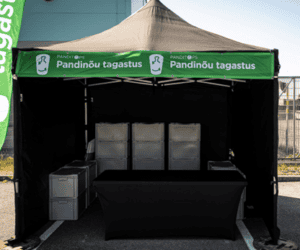
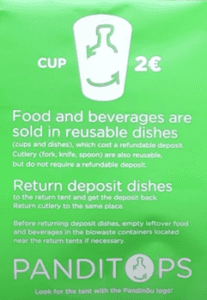
Picture 4. Reusable dishes collection point
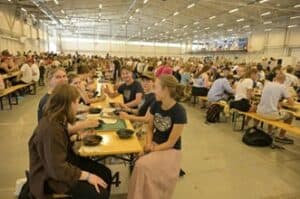

Picture 5. Performers eating soup from a reusable bowl
In addition, there were 70 waste collection points where the waste was sorted into 4 fractions (biowaste, packaging waste, deposit beverage packaging and mixed waste, as shown in Figure 1). Around 100 volunteer green ambassadors (Pictures 6 and 7) guided visitors in sorting waste and providing information about the reuse system at all 70 waste collection points. To encourage visitors to use their own reusable water bottles and to buy less single-used plastic bottles several permanent public water taps were installed at the festival area.

Figure 1. Waste sorting scheme
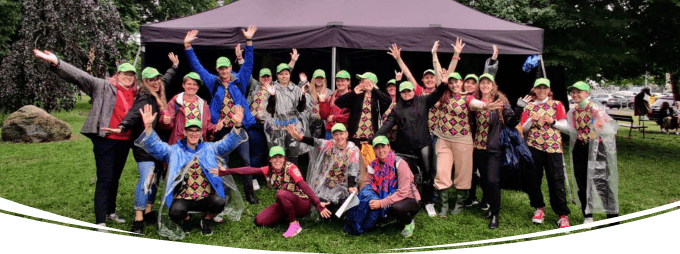
Picture 6. Green ambassadors and advisors
Thanks to the reuse system significantly less waste was generated compared to the previous festival in 2019. In 2019 a total of 40 tons of waste (all unsorted mixed waste) was generated while in 2023 only 22,1 tons of waste was generated out of which 8,3 tons was biowaste, 3,9 tons was plastic and metal packaging waste, 0,5 tons was paper and cardboard waste, 1,5 tons was glass packaging waste and 7,9 tons was mixed waste.
As such, the event turned out to be a great success and will serve as the best practice for all future zero-waste public events in Estonia and further. The proper organizational approach (reusable dishes service providers, reusable dishes collection system, green ambassadors, clear informative materials/guides/communication, early involvement of all stakeholders, etc) showed that it is possible to organize mass events in a circular manner.
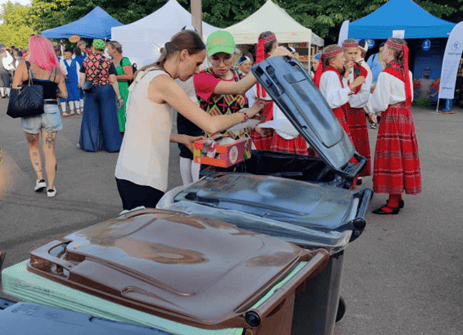
Picture 7. Green ambassadors guide visitors on how to sort waste





